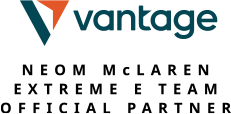Vantage uses cookies that are essential for our website to work. We also use optional analytical cookies to help us to improve our website and the services, content and ads we provide to you which you can accept or reject here. Please see our Cookies Policy for more information on how we use cookies.
The Basics When It Comes To Forex Brokers
Regulation
Any reputable forex broker will have rules and services to protect the integrity of the forex market. They should be protecting the public from fraud, market manipulation and abusive practices. Depending on a broker’s location, it’s important that they a regulated by the relevant regulatory authority.
Location
Now, you may never have to actually physically visit your broker’s office, but your broker’s location should indeed still remain a consideration because of regulation and educational opportunities. A broker located in a country with little regulation could be significantly riskier than one where compliance and regulatory bodies hold a strong presence. Also, a trader whose broker is regulated has some recourse if something happens or there’s an issue with the broker – the trader can contact the appropriate governing body to file a complaint or resolve the issue. Additionally, if your broker has an office near you they often hold seminars or workshops at their offices.
Founding Year
A broker who’s been established for some time can sometimes offer an indication of their professionalism, reputation and reliability. Time and time again, ‘bucket shop’ brokers who act fraudulently or just run a poor business ended up closing just as quickly as they arrived. Whilst every business has to start out as a new company, those who have been around for a few years or so gain credibility because a rubbish broker or badly managed one is unlikely to remain in business over the long term.
Trading Platforms
Your trading platform connects you to the markets, so you need to ensure that the platform or software you’re using has what you need. And more importantly, you need to be able to enter and exit trades with ease, so your platform should have very clear and obvious Buy & Sell buttons. A platform that’s designed poorly can quite easily lead to costly mistakes when entering orders. For example you can unknowingly enter the wrong position size or even trade the wrong direction to what you intended. Another thing to consider is whether you want to be able to program indicators or strategies within your platform. You may want to consider a platform that has backtesting capabilities, automated trading functions, etc.
Spreads
Most brokers make their money on what’s called the ‘spread’; which is the difference between the bid and the ask price. Ideally, the lower the spread the better, but this depends very much on the liquidity of an instrument or pair. For example, popular pairs such as the EURUSD, USDJPY, GBPUSD, etc tend to have quite low spreads across most brokers compared to pairs such as USDTRY and other more ‘exotic’ pairs. If you’re a scalper then spreads become even more important because you’re only aiming for smaller profits, a lot of that can get eaten up by spreads. The best Forex broker for you will offer competitive spreads, however if you’re looking for the lowest spreads, perhaps consider an ECN account with a good sized broker.
Trading Instruments
There are no shortage of currency pairs to be traded across a variety of different brokers, yet only a select few are trading by the majority, and as a result are more liquid than the others. You also may want to consider whether your broker offers commodities, and indices as instruments that you can trade. This depends very much on your trading strategy, so you should make sure that your broker offers the instruments that you trade.
Leverage
Depending on your trading style and risk profile, leverage is another consideration when choosing a Forex broker. Leverage can be a bit of a double-edged sword. Leverage enables smaller accounts to be able to grow faster, but in saying that, losses are amplified as equally as the profits. How it works is that say, your account is leveraged at 100:1, this means that for your $100, you can trade a position size of $10,000. Always err on the side of caution when it comes to leverage as it can quickly destroy accounts if mistreated.
Mobile Trading
Trading from a mobile device is growing in popularity because it offers a convenient method of staying in touch with the markets. Most larger brokers offer access to chart and trade windows through mobile applications that are available for both iPhone and Android OS.







